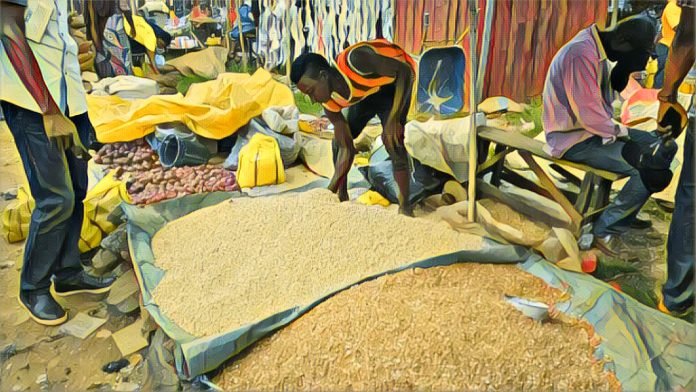Nigerian farmers are still waiting for the government to provide any assistance to boost food security three months after President Bola Tinubu declared a state of emergency. The farmers say they have not received any loans, inputs, incentives, or policies to help them reduce production costs and cope with conflict, climate change, inflation, and rising food prices.
The state of emergency on food security was announced in July 2023 following a series of shocks that threatened the livelihoods and nutrition of millions of Nigerians. According to the government, the declaration was meant to mobilize resources and actions to address the food crisis and ensure food availability, accessibility, and affordability for all Nigerians.
However, the farmers say they have not seen any concrete changes or benefits from the declaration. They say they are still struggling with the same issues that have plagued the sector for years, such as insecurity, poor infrastructure, low yields, post-harvest losses, lack of market access, and inadequate government support.
“Emergency means urgency, but we aren’t seeing that right now after three months in the sector despite the declaration by the President,” said African farmer Mogaji, chief executive officer of X-Ray Farms Consulting. “Nothing has changed for farmers since the declaration of the emergency. It’s theory to them, not practical.”
Ibrahim Kabiru, national president of All Farmers Association, said the state of emergency on food security includes tackling insecurity, mitigating the effects of climate change, minimizing post-harvest losses, deploying technology, accentuating processing, and providing affordable transportation.
Kabiru noted that nothing is happening yet in the sector since the declaration but more time is needed for the Tinubu administration to hit the ground running in providing the necessary support farmers need to boost productivity.
“We believe things will start happening from the November food security summit the minister mentioned,” he said.
After the declaration, the Nigerian government announced several initiatives to support the agricultural sector, such as releasing fertilizers and seeds to farmers and investing in irrigation infrastructure. However, several farmers say they have not received any support since the government announced.
“We heard it as an announcement, but it is yet to take off. We are yet to receive any support since the declaration, and the season is almost over,” said Muhammed Augie, former state chairman of Rice Farmers Association of Nigeria, Kebbi state chapter.
Many farmers remain skeptical and call for more tangible actions to back up the emergency declaration. They argue that without immediate and effective interventions, the state of emergency may remain a hollow promise, leaving them to grapple with the risk of hunger and malnutrition.
According to a UN-supported food and nutrition analysis in October 2022, nearly 25 million Nigerians are at risk of hunger between June and August 2023 if urgent action is not taken. This is a projected increase from the estimated 17 million people at risk of food insecurity. Children are the most vulnerable to food insecurity. Approximately 6 of the 17 million food-insecure Nigerians today are children under 5 living in Borno, Adamawa, Yobe, Sokoto, Katsina, and Zamfara states.
The UN agencies and other humanitarian partners have been providing lifesaving assistance to millions affected by food insecurity and malnutrition in Nigeria. They have also been supporting the government in strengthening its capacities and systems for food security and nutrition.
However, they warn that more resources and actions are needed to prevent the worsening of the situation and address the root causes of food insecurity in Nigeria. They urge the government and other stakeholders to work together to ensure that the state of emergency on food security translates into meaningful outcomes for Nigerian farmers and consumers.
Source: BusinessDay



